Roberta Eaton, aka Robbie Cheadle, shares the third of her posts on the beliefs and myths of her home. Other posts in the series can be found by cicking here: Part One, Part Two
Beliefs and myths of southern Africa – The Xhosa (pronounced KOH-suh)
The Xhosa-speaking people of South Africa, also know as the “Red Blanket People” are descendant of the Nguni clan. They are divided into several subgroups each with their own district and related heritages. The major subgroups include Bomvana, Mpondomise, Thembu, Xesibe and Mpondo. This article refers to all these subgroups collectively as Xhosa. The Xhosa people traditionally hail from the southeastern area of South Africa.
Xhosa is a Nguni Bantu language with click consonants. Xhosa is a tonal language which means that the same sequence of consonants and vowels can have different meanings, depending on intonation. Xhosa has two tones: high and low. Xhosa is one of the eleven official languages of South Africa.
One oral tradition claims that the name “Xhosa” comes from a legendary leader and King of the same name. Another tradition states that all the Xhosa subgroups are descendants of one ancestor, Tshawa.
Red and the orange of ochre are the traditional colours of the Xhosa.

Picture from South African History Online
God and the afterlife
The Xhosa people traditionally believed in a supreme deity known as uThixo or uQamata. It was this supreme being that made the heavens and earth and brought forth the people and animals. In Xhosa tradition the ancestors act as intermediaries between the living and God, who rarely becomes involved in the everyday life of people.
The Xhosa people generally look to their ancestors for blessings of prosperity and protection. The departed heads of the family, who are interested in their relatives as individuals, are honoured through ritual offerings and sacrifices. The ancestors traditionally make their wishes know to the living through dreams. Witch doctors act as mediums to interpret the dreams through which the ancestral fathers speak to their families. They often wear white, a symbol of purity.
Dancing is one of the ways the living converse with the dead and offer praise to the ancestors.
Today, many Xhosa-speaking people are Christian. Modern cultural traditionalists frequently combine Christianity with traditional beliefs and practices.
The Lightning Bird
The impundulu or lightning bird, takes the form of a white and black bird, about the size of a man, with a large hooked beak, long legs and red feet. The impundulu is often the servant or familiar of a witch and will attack the witch’s enemies. It is said to have an insatiable appetite for blood.
The impundulu is very powerful. When it flaps its wings thunder roars, and when it spits, forked lightning flashes. Where impundulu strikes the ground is seared and that is where it lays its eggs. The eggs can be either a good or a bad omen which results in it being necessary to dig it up and dispose of it.
The lightening bird cannot be killed by shooting, stabbing, drowning or poison. The only way it can be killed is by burning it in a fire. Otherwise, it is immortal and outlives its masters.

Picture from https://africaroadtravel.com
The Tokoloshe
The Tokoloshe, also known as “hili” and “gilikango” is a dwarf-like water sprite and is probably the best-known character in Xhosa folklore. He has a bad reputation for being mischievous and an evil spirit.
The traditional belief is that the Tokoloshe can be summoned by people of ill-intent to cause trouble for others. Placing bricks under the legs of the bed, protects both the bed and its occupant from attack by this creature who is known to bite off toes.
The Tokoloshe is aware he has many enemies and only allows himself to be seen by children, whom he befriends and trusts. The monitor lizard is also said to be his friend, acting as a sort of a house servant and keeping his den clean and its walls plastered with mud. When the Tokoloshe dances, the lizard will clap and stamp in time to the music.
Sources
South African History Online
Myths and Legends of southern Africa by Penny Miller
Wikipedia
Countries and their Cultures/Rwanda to Syria/Xhosa>
Buzz South Africa.com/xhosa-tribe-culture-and-language/
www.krugerpark.co.za/africa_Xhosa
 About the author
About the author
Robbie, short for Roberta, is an author with five published children’s picture books in the Sir Chocolate books series for children aged 2 to 9 years old (co-authored with her son, Michael Cheadle), one published middle grade book in the Silly Willy series and one published preteen/young adult fictionalised biography about her mother’s life as a young girl growing up in an English town in Suffolk during World War II called While the Bombs Fell (co-authored with her mother, Elsie Hancy Eaton).
All of Robbie’s children’s book are written under Robbie Cheadle and are published by TSL Publications. Robbie has recently branched into adult horror and supernatural writing and, in order to clearly differentiate her children’s books from her adult writing, these will be published under Roberta Eaton Cheadle. Robbie has two short stories in the horror/supernatural genre included in Dark Visions, a collection of 34 short stories by 27 different authors and edited by award winning author, Dan Alatorre. These short stories are published under Robbie Cheadle.
Find and follow Roberta Eaton
Roberta Writes Blog Twitter Facebook
While the Bombs Fell
What was it like for children growing up in rural Suffolk during World War 2?
Elsie and her family live in a small double-storey cottage in Bungay, Suffolk. Every night she lies awake listening anxiously for the sound of the German bomber planes. Often they come and the air raid siren sounds signalling that the family must leave their beds and venture out to the air raid shelter in the garden.
Despite the war raging across the English channel, daily life continues with its highlights, such as Christmas and the traditional Boxing Day fox hunt, and its wary moments when Elsie learns the stories of Jack Frost and the ghostly and terrifying Black Shuck that haunts the coastline and countryside of East Anglia.
Includes some authentic World War 2 recipes.
Robbie also writes as Robbie Cheadle
Robbie’s Inspiration Blog Goodreads Facebook YouTube
Amazon author page Twitter: @bakeandwrite
 Books by Robbie and Michael Cheadle
Books by Robbie and Michael Cheadle
The Sir Chocolate books are a delightful marriage of story, verse and cookery
… a perfect recipe for sharing with children. Silly Willy goes to Cape Town tells the adventures of two very different brothers…and includes five party cake ideas.
You can purchase the Sir Chocolate books from:
or you can buy them in South Africa directly from the authors by emailing Robbie Cheadle at sirchoc@outlook.com.

Tell me a story… 
If you are a writer, artist or photographer…If you have a poem, story or memoirs to share… If you have a book to promote, a character to introduce, an exhibition or event to publicise… If you have advice for writers, artists or bloggers…
If you would like to be my guest, please read the guidelines and get in touch!


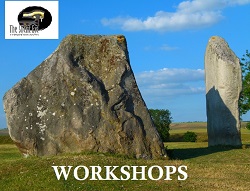

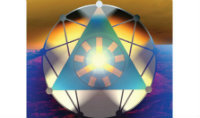

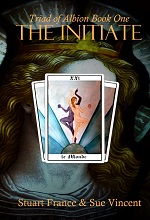


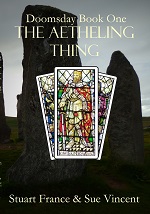
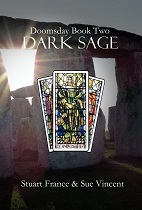
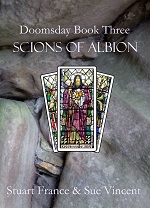
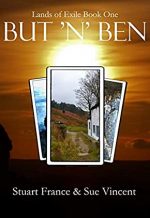






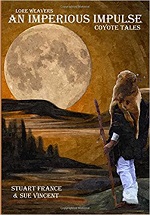


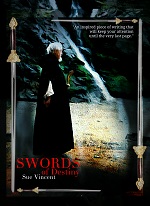

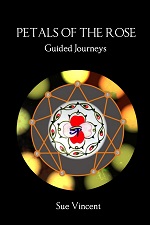


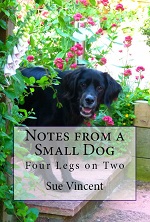



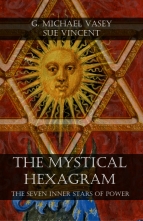

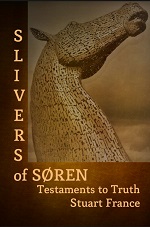


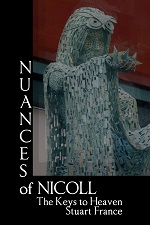


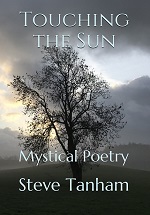

Thank you, Sue, for sharing this post. I find the Xhosa language interesting with its inflections and the clicks. It is lovely to have an opportunity to share my interest.
LikeLiked by 2 people
I amvery glad that you did, Robbie 🙂
LikeLiked by 2 people
Thank you, Robbie for a great post. I watched the video and managed the clicks. xxx
LikeLiked by 2 people
Did you really? Well done, I have taken years to get it right. One of my ex colleagues is Xhosa speaking. Zulu feels more dominant but I think that is just because that is the language taught in the schools in Johannesburg.
LikeLiked by 2 people
I saw the musical Ipi Tombi years ago as a kid and loved the dialect then so it was with joy that I watched the video you posted.
LikeLiked by 1 person
Fascinating information here. Very informative. Have you thought of using this research in a book for middle-grade readers or young adults?
LikeLiked by 2 people
I did think about writing a book focusing on southern Africa. The problem is the book market there is so limited I don’t know if there will be much of a reception for such a book.
LikeLiked by 3 people
But the rest of the world would love it!
LikeLiked by 2 people
Would be great Robbie! Think South Africa is like whole Africa big in the mind in future. Maybe you can put some information about emigration and actual lifestyle in it too. Michael
LikeLiked by 1 person
Reblogged this on Roberta Writes and commented:
This week I am over at Sue Vincent’s blog with a post about the beliefs and myths of the Xhosa speaking people of southern Africa. Thanks you, Sue, for hosting me.
LikeLiked by 1 person
This is interesting stuff. The lightning bird in particular sounds formidable.
LikeLiked by 2 people
Thanks Priscilla. I enjoyed the lightening bird too. The Tokoloshe is the creature that is most well known. Many people are very frightened of this malevolent man and many local people still put bricks beneath their bed legs.
LikeLiked by 1 person
Thank you for another piece of beautiful information. What great culture we lost during the last centuries. Fantastic to get knowledge about it. Michael
LikeLiked by 2 people
Thank you, Michael. Christianity in southern Africa has incorporated certain of the traditional practices so this culture is not lost.
LikeLiked by 2 people
Hello Robbie Thank you, i know, at least a little bit. 😉 The earlier tradition is already great. Not just old men (Roman-Catholic) in coloured dresses. ***lol*** Have a great weekend. Michael
LikeLiked by 2 people
Thank you for sharing. Great discussion, overview and detail. It was a completely new topic for me. I’m always in awe of Robbie’s knowledge and work.
LikeLiked by 2 people
It is always a pleasure to have Robbie over.
LikeLiked by 2 people
Thank you, Jay. I find African beliefs and mythology very interesting.
LikeLiked by 2 people
Very interesting!
LikeLiked by 2 people
Thank you, Jennie. I am pleased you enjoyed this little peep into southern African myths and beliefs.
LikeLiked by 2 people
You are welcome, Robert.
LikeLiked by 1 person
Pingback: Guest author: Roberta Eaton ~ Beliefs and myths of southern Africa V: The Venda | Smorgasbord Blog Magazine